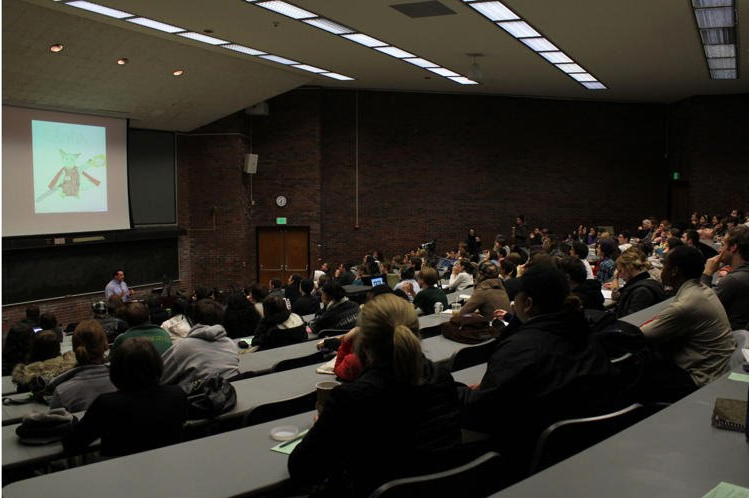

What does Harry Potter have in common with the family structure of chimpanzees? How is Artemis Fowl closely linked to species of fowl? How do the male and female characters created by male and female authors differ?
Victoria Ingalls, a biologist at Marist College, discussed all this and more at her lecture on “Sex Difference in Hero Creation: A Sociobiological Analysis of Children’s Fantasy Literature” on
Monday, Feb. 21.
Beginning with Superheroes from Wonder Woman to Arañita, Ingalls talked students through her research, noting that male writers are more likely to create the all powerful superman and female writers are more likely to create a
family-oriented character.
Ingalls said this is all purely science and the biological purpose of life is to put out as many genetic copies of yourself as possible, relating back to chimpanzees. Male chimpanzees – similarly to humans – will want to appear powerful because it will allow them to mate with many females and generate a large amount of offspring. Females are more concerned with protecting their current offspring as they are the ones carrying them around for a year and are less capable of replacing a lost child as quickly.
According to Ingalls, the powerful, fist-fighting and grossly wealthy characters designed by men are traditionally made with their primal urges in mind. The females, on the other hand, are more focused on their families and the information they gather.
She said this falls in line with Darwin’s theory of natural selection, as the most biologically fit mates are expected to be the most successful.
“Darwin’s theory of evolution by natural selection is so powerful that it allows for an understanding of all phenomena related to life – and artistic products of humans certainly fit in this category,” said Glenn Geher, director of Evolutionary Studies.
This cross disciplinary research garnered a lot of interest at the packed lecture, from evolutionary science students to
English students.
“The EvoS Program is premised on the idea that different academic disciplines need not be islands that are remote from one another,” said Geher. “Literary analysis, psychology and biology can be understood as intimately connected when one takes an evolutionary approach.”
